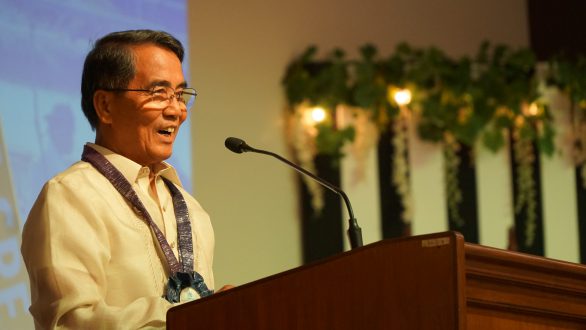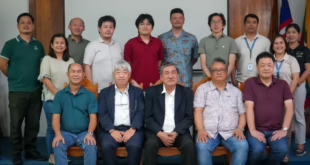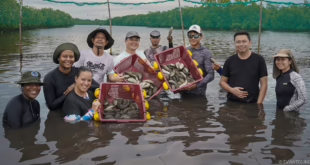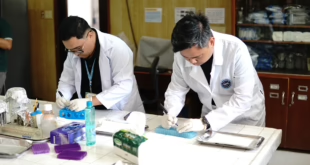
DR. ALFREDO Santiago called on SEAFDEC/AQD researchers to go beyond their “box of expertise,” work together, and pool their ideas to further the development of aquaculture.
In his keynote message during the SEAFDEC/AQD 46th Anniversary Program on 12 July 2019, Dr. Santiago noted that SEAFDEC/AQD has all the expertise to support the generation of quality and sustainable aquaculture technologies but emphasized that experts must work as a team.
“Brainstorm and apply the interdisciplinary approach in conducting research,” said Dr. Santiago who was also a senior researcher prior to becoming chief of SEAFDEC/AQD from January 1983 to April 1986.
Dr. Santiago also stressed the importance of keeping abreast of how aquaculture is developing around the world while being mindful that what might be sustainable in one area might not be sustainable in another.
“With the advances in information technology, everyone should be aware of what is going on in other places, countries, and find out techniques that can be improved and adopted to existing aquaculture technologies,” he said, addressing the SEAFDEC/AQD community assembled at the Multi-Purpose Hall.
The former SEAFDEC/AQD Chief also said that research outputs must reach the fish farmers and fish culturists through education, training and extension.
“Cooperation with the private sector, government agencies, and other international agencies must also be pursued,” he said.
Finally, he challenged the researchers and scientists to “make the SEAFDEC Aquaculture Department a consistent leading agency in the further development of sustainable aquaculture technologies that address food security.”
In the early years of SEAFDEC/AQD, Dr. Santiago was instrumental in the establishment of tiger shrimp maturation pens in Guimaras which eventually became the Igang Marine Station. This paved the way for the completion of the tiger shrimp life cycle in captivity, the first major breakthrough of SEAFDEC/AQD which catapulted the institution to international prominence.
 SEAFDEC/AQD Southeast Asian Fisheries Development Center | Aquaculture Department
SEAFDEC/AQD Southeast Asian Fisheries Development Center | Aquaculture Department



